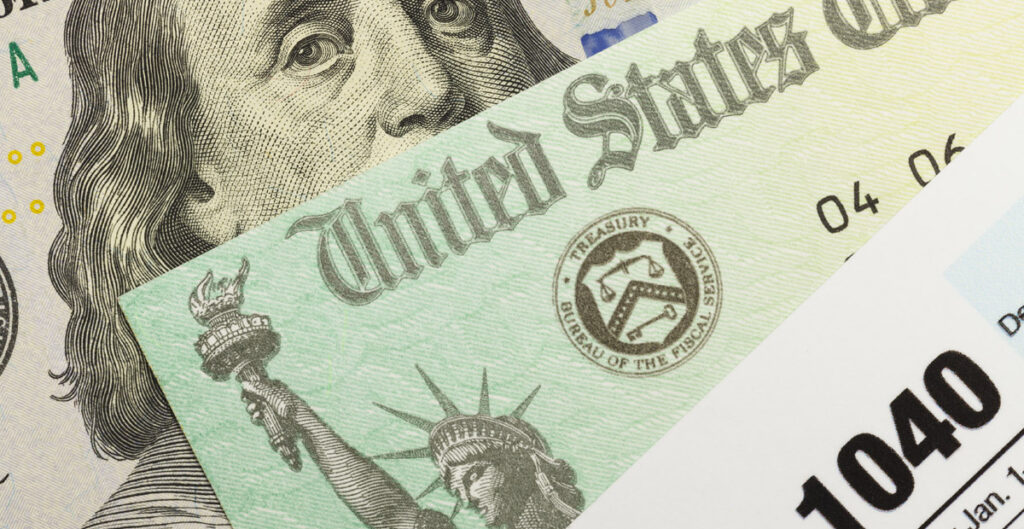Preparing for Tax Season
Tax season can be a stressful time for many, but with the right preparation, you can make the process smoother and less daunting. Whether you’re filing your taxes for the first time or you’re a seasoned pro, getting organized and staying ahead of deadlines is key to avoiding last-minute stress.
Below is our comprehensive guide on how to prepare for tax season effectively. At Tax Pros Online, we want to equip you with all the necessary information to help you make the most out of filing your taxes!
1. Gather All Necessary Documents Early
Start by collecting the documents you’ll need to file your taxes – and do it early on in the year way before the deadline to minimize stress! Necessary documents typically include:
- W-2 forms: For those who are employed, this is a summary of your earnings from your employer.
- 1099 forms: If you’re self-employed, freelancing, or have side gigs, these forms report income earned outside traditional employment.
- Investment income documents: If you have dividends, stock sales, or other investment income, you’ll receive forms like 1099-B or 1099-DIV.
- Mortgage interest statements: Homeowners can deduct mortgage interest, so 1098 forms are also needed.
- Charitable contribution receipts: Next, gather records of any donations you’ve made throughout the year.
- Receipts for medical expenses: Some medical expenses may be tax-deductible, so keep records of them.
- Business expense receipts: If you run a business or are self-employed, collect receipts and invoices for tax-deductible expenses.
Being organized and collecting these documents well before tax season ensures you won’t be scrambling last minute to find everything you need.
2. Know the Deadlines
Mark important tax deadlines on your calendar, especially if you’re self-employed or have estimated quarterly tax payments. The most common deadline for individuals to file their federal income tax return is April 15th.
If you can’t file by then, you can request an extension, but remember that any taxes owed are still due by that date.
We discuss more about tax deadlines in our article on when taxes are due here.
3. Review Tax Deductions and Credits
Maximizing your deductions and credits can significantly reduce your tax bill. Common deductions to know include:
- Standard Deduction: The IRS offers a standard deduction, which is a fixed dollar amount that reduces your taxable income.
- Itemized Deductions: Alternatively, you can itemize deductions like medical expenses, mortgage interest, and charitable contributions if they exceed the standard deduction.
- Tax Credits: Unlike deductions, tax credits reduce the amount of taxes you owe directly. Common credits include the Earned Income Tax Credit (EITC), Child Tax Credit, and education credits like the American Opportunity Tax Credit.
Research or consult a tax professional like Tax Pros Online to ensure you’re taking advantage of all the deductions and credits available to you!

4. Consider Using Tax Software or Hiring a Professional
Decide whether you will file taxes on your own using tax preparation software or if you will hire a tax professional, like the tax experts at Tax Pros Online!
However, if your financial situation is more complicated — for example, if you own a business, have investment properties, or need help understanding tax law — it may be wise to hire a certified tax professional right away to guide you through the process.
5. Set Aside Funds for Tax Payments
If you expect to owe money to the IRS, it’s important to set aside funds in advance. Review your pay stubs and calculate if enough taxes were withheld throughout the year, especially if you’ve had significant income changes, additional side jobs, or investment gains.
Setting aside money before the tax deadline can prevent a large, unexpected tax bill from catching you off guard.
6. Check for Changes in Tax Laws
Tax laws change frequently, so it’s important to stay updated on any modifications that may affect your filing. For example, certain deductions or credits may be adjusted, new tax brackets might be introduced, or pandemic-related relief programs might end.
Staying informed can help you avoid errors on your return and ensure you’re taking advantage of any new benefits.
7. Keep Digital Copies of Your Tax Documents
Storing your tax documents digitally is a great way to ensure you don’t lose important papers and can access them easily when needed. Keep scanned copies of your W-2s, 1099s, receipts, and other important documents in a secure, backed-up location.
Many tax professionals and software programs allow you to upload these documents directly, making it more convenient when it’s time to file.
8. Prepare for Next Year
Once you’ve filed your taxes for this year, you can start preparing for the next tax season. Throughout the year, we recommend that you do the following to ensure you’re fully prepared:
- Track your income and expenses: Especially if you’re self-employed or have multiple income streams, keeping a record will help you avoid a mad dash for documents during tax time.
- Adjust your tax withholdings: If you received a large refund or owed a significant amount this year, you may want to adjust your tax withholdings on your W-4 form.
- Set aside money for estimated taxes: If you’re self-employed or have substantial income from investments, you should ensure you’re making quarterly tax payments throughout the year.
Further Reading: What are My Tax Filing Status Options and When to Choose Which One?

Preparing for Tax Season: Final Thoughts
Preparing for tax season doesn’t have to be overwhelming. By staying organized, gathering the necessary documents early, and understanding what deductions and credits you qualify for, you’ll make the process much more manageable.
Whether you choose to file on your own or hire a professional, being proactive ensures a smoother tax season and reduces your stress. For more information about all the tax services currently covered by TaxPros.Online, please refer to our tax information page.
Let Tax Pros Online be your source for preparing for tax season!
Further Reading: Standard Deduction vs Itemized Deduction: What is the Difference?

